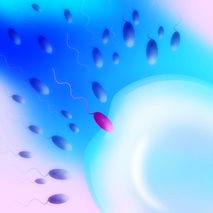Quarantining frozen sperm
 If you decide to use a known donor and get treatment through a fertility clinic it is important to be aware that fresh sperm will need to be frozen and quarantined for 6 months (180 days) before the donor can be re-tested and the sperm released.
If you decide to use a known donor and get treatment through a fertility clinic it is important to be aware that fresh sperm will need to be frozen and quarantined for 6 months (180 days) before the donor can be re-tested and the sperm released.
This is the only way of being 100% certain that the sperm is free from infectious diseases such as HIV and hepatitis. Current legislation requires a 6 month quarantine of sperm. Although with advances in certain infection testing, the majority of tests nowadays would be able to detect infection with a window less than 3 months. This could in the future cut the time of quarantining by half or less, but this is not something which is likely to be reviewed in the very near future.
When you are considering using a known donor it is worth bearing in mind the timely infection testing and quarantining of the sperm early on. Your donor if happy to do so, would be able to make semen deposits at a clinic within the first month, at the same time of giving blood samples for infection testing. This would allow both the donor and the recipient, sufficient time over 5 months to get to know each other further and make any necessary arrangements. This time can also be used effectively to get any advice, counselling and put legal arrangements in place.
Once you have made the initial decision to use a known donor to conceive, some people find it difficult to wait 6 or more months. However the decision to become a parent is such a life changing one that we always recommend that individuals don’t rush into any arrangements before they have given them a lot of careful consideration.
Using Fresh sperm at a fertility clinic
Using fresh sperm for treatment does have a higher success rate, whether performed at home or insemination within a clinic. However there is no guarantee that the sperm is infection free. This is because there is always a window of time, whereby if your donor had acquired an infection within the last week or month, then a HIV test today would not show up the newly acquired infection. This said the majority of the world’s children are born using fresh sperm, so the risk is relatively low. The question is whether as a recipient you know your donor well enough to put yours and your baby’s life at risk of infection.
If you are using an extended family member or a close friend to donate sperm as a known donor, or a donor who is in a long term committed relationship, then the risk would be considerably less than a donor who you have only just met. Currently regulations mean that if donor is not your partner you will not be able to opt for using fresh sperm to perform artificial insemination within a fertility clinic.
In co-parenting situations, certain clinics may treat you and your donor using fresh sperm if you have known each other well and for several years, in the same way as a clinic would treat a married couple. In these circumstances you would both be required to sign a disclosure, accepting the responsibility that the sperm may not be free from infection.
It is advisable to seek advice from your local fertility clinic regarding their protocols on using fresh sperm.
Using fresh sperm for home insemination
Some people decide that they would prefer to undertake home insemination as a method of conceiving using fresh sperm. This option may be considered by heterosexual couples who have experienced difficulties in conceiving due to problems such low sperm motility. Alternatively some people who have found a known donor or co-parent choose home insemination with fresh sperm rather than frozen sperm within a clinic. Careful consideration must be given to the infection risks of using fresh sperm and it is advisable to gain advice from your local GP regarding the necessary testing and reliability of these tests.
NAAT Testing for infections
Newer more advanced testing for infections such as the Nucleic Acid Amplification Tests (NAAT) can detect infection within a matter of days instead of weeks or months with conventional testing methods. Because the risk is very low indead when sperm is tested using NAAT tests for HIV, Hep B and Hep C, the HFEA regulations state that sperm does not need to be frozen and quarantined provided these tests have been performed by a regulated laboratory. Please consult with your fertility clinic or GP for further information about the availability of these tests.
HFEA regulations state: 'donor sperm must be quarantined for a minimum of 180 days, after which repeat testing is required. If the blood donation sample is additionally tested by the nucleic acid amplification technique (NAT) for HIV, HBV and HCV, quarantining of the gametes and re-testing of a repeat blood sample is not required. Quarantine and re-testing is also not required if the processing includes an inactivation step that has been validated for the viruses concerned.'
Legal considerations
It is also important to consider the legal implications of using fresh sperm for home insemination when conceiving with a known donor. Whereas treatment within a regulated clinic would protect the donor from be financially responsible for any child. Regulated clinics are also required to keep a record of identifying information about the donor in order for a donor conceived child to be able to make contact at age 18 if they wish to.